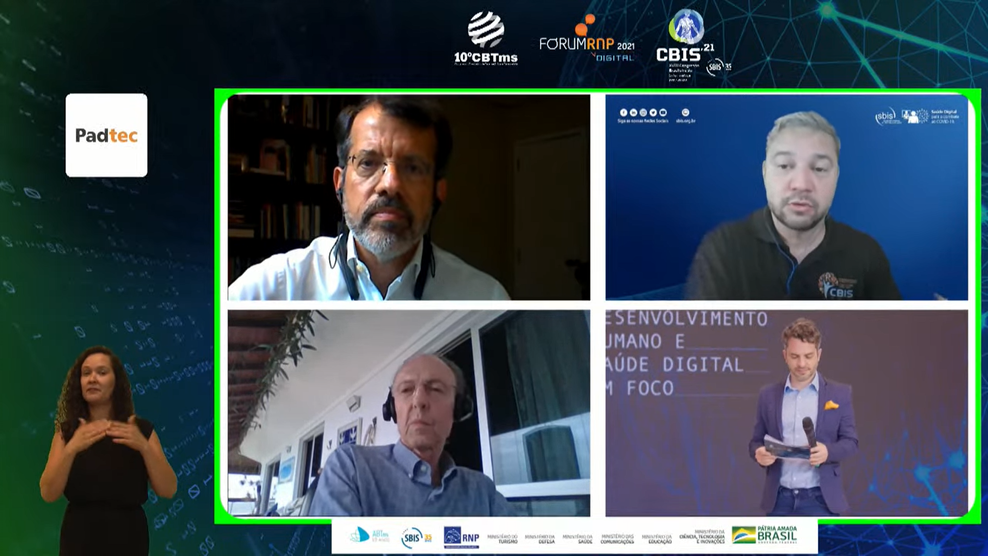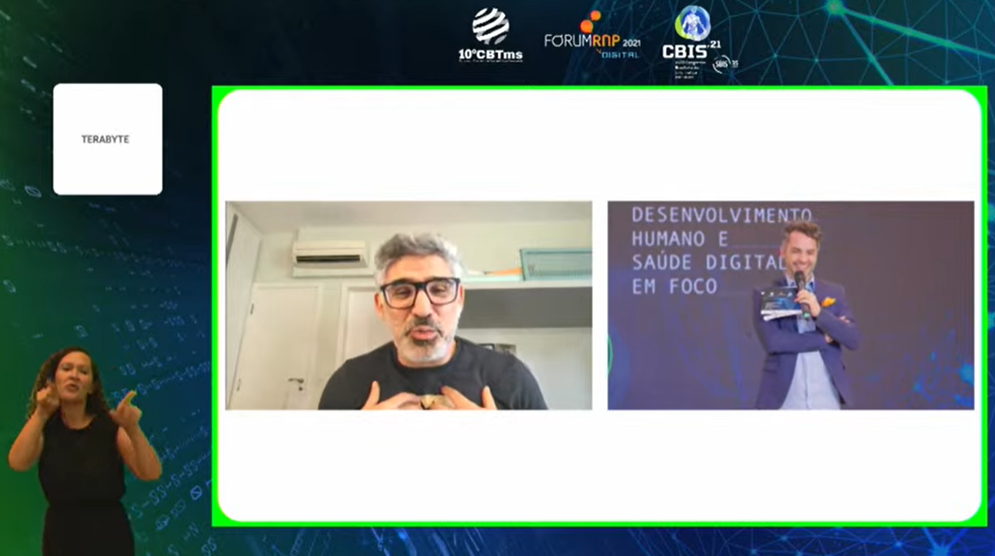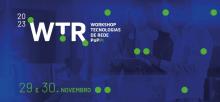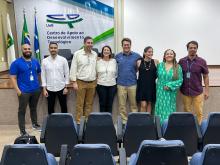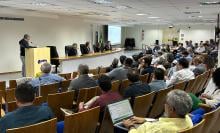Learning, digital health and internet access were the highlights of the first day of #FórumRNP2021
At 2 pm this Monday (11/22), internet users were able to “press play” and start a marathon of learning, debates and exchange of experiences in yet another edition of the RNP Forum. In its tenth edition and for the second time in 100% online and free of charge format, this time, the event joined the Annual Congresses of the Brazilian Society of Health Informatics (SBIS) and the Brazilian Association of Telemedicine and Telehealth (ABTms), forming Latin America's largest digital health forum.
To celebrate this alliance in favor of Human Development and Digital Health – the focus of this edition –, the opening of the RNP 2021 Forum was attended by the director-general of RNP, Nelson Simões; the Secretary for Entrepreneurship and Innovation at the Ministry of Science, Technology and Innovation (MCTI); the national coordinator of the University Telemedicine Network (Rute) and president of ABTms, Luiz Ary Messina; the president of SBIS, Luis Gustavo Kiatake; and Congresswoman Adriana Ventura, who is the author of the Bill (PL) 696/2020 that regulates telemedicine in Brazil.
On the occasion, the general director of RNP spoke about the main objectives of the event. “This week, let's turn our gaze to human development. It is a time when people, as well as their health and development, are so important. We are also here to learn about technology, education, research and how we can contribute to a better life for everyone, for people, for the country. Connecting to educate is what RNP has been doing and collaborating to learn is the key to what we propose at the RNP Forum and not just between us, but on a global scale”, argued Nelson.
The Power of Continuous Learning
In the presentation of the event's first keynote speaker, the spotlight was turned to the continuous learning process or lifelong learning. Conrado Schlochauer, member of Novi and author of the book “Lifelong Learners”, highlighted the primordial role of learning in a world that is constantly changing and explained how the pandemic made us aware that we know how to learn from an active posture, differently from what was throughout our entire life at school and university, where there was always someone responsible for defining what, how and when we should learn.
“Learning is not about memorizing the recipe, but about making the cake. Themes and subjects are means. Performance and skills are ends. We need to have an intention to define what to learn. The world is changing fast and, living longer, our only path is the learning process. It is no coincidence that the World Economic Forum recognizes active learning and learning strategies as the main competences for Brazil in the next five years”, highlighted Conrado.
Human development and digital health
Dealing with the subject, the guiding principle of the event, the panel of rectors focused on the theme “Human Development and Digital Health” and was moderated by the creator and coordinator of the National Telehealth Brazil Networks Program of the Ministry of Health, Ana Estela Haddad.
The rector of the State University of Amazonas, Cleinaldo de Almeida, started the debate by presenting the successful Telehealth Amazonas project, linked to the National Telehealth Networks Brazil Program, present in 61 municipalities in Amazonas, in addition to the capital, and five indigenous communities. Aiming to bring health to remote areas of the state, the initiative has Tele-education, Tele-consulting, Tele-diagnosis and Formative Second Opinion services. The program reinforces that digital health has made it possible to provide care to a population that lacks resources, with a speed that was not possible before. The Dean of Health at UERJ, Denizar Vianna, contributed with some reflections on the importance of digital health to improve the population's access to quality healthcare.
“We are unable to provide every municipality in this continental country with a specialist doctor. We can advance in speed and productivity, connecting a patient to a professional more easily. This is a point that I would like to highlight regarding the importance of digital health, that of providing access to these specialists”, highlighted Denizar.
Innovation Policy in Connected Education
The universalization of the right to access the internet is on the agenda and it means defending public policies of inclusion that guarantee permanent, safe, reliable and quality internet access for all. In Brazil, the Federal Government is developing the Connected Education Innovation Policy (PIEC), to promote the use of digital technologies in pedagogical activities in basic education. The initiative is coordinated by the Ministry of Education (MEC) and has RNP as the project's executor, in a pilot phase, in partnership with states, municipalities and regional providers.
The topic was discussed in a panel on the first day of the Forum, with moderation by the project manager at RNP, Andrei Amaral; and the participation of Álvaro Carneiro, from the Secretariat of Basic Education (SEB) of the MEC; the Secretary of Education of Caruaru (PE), João Paulo Cepa; and the deputy director of Institutional Relations at RNP, Gorgonio Araújo. “We cannot talk about a 21st century school without democratizing access to the internet within the school”, said Cepa.
• Still not registered in the Forum? Don't miss the second day of learning! Do it right now here.
• Follow us on social media for full coverage!
